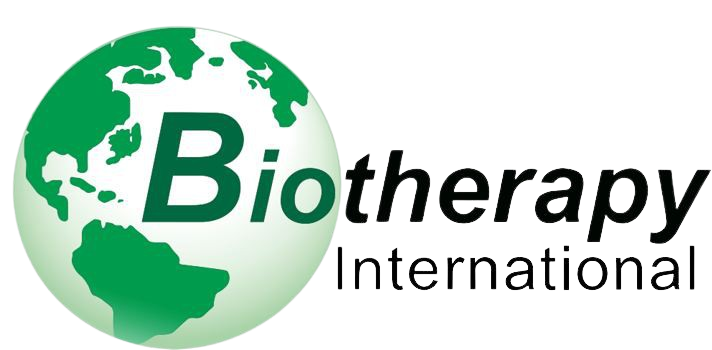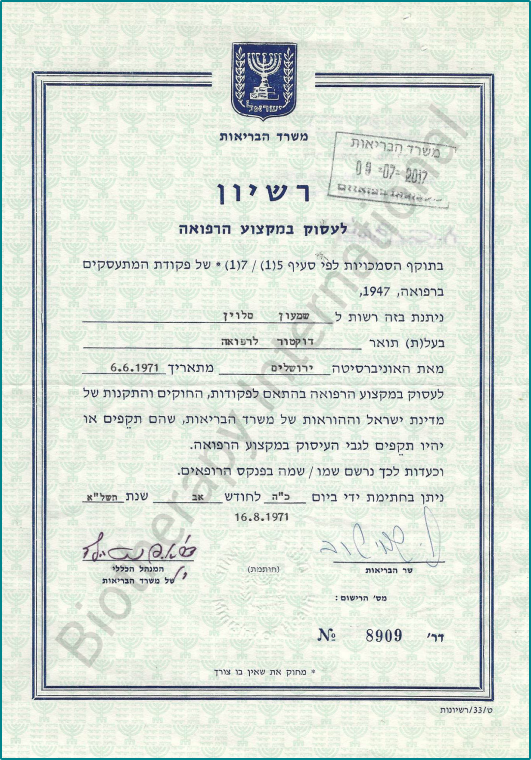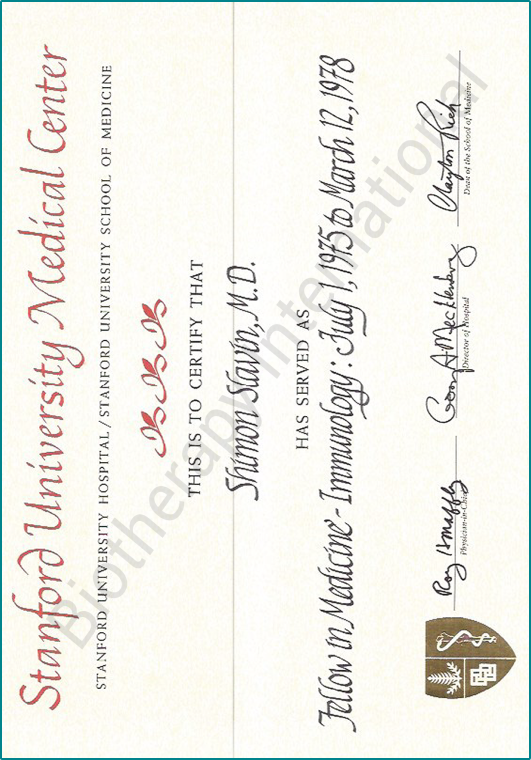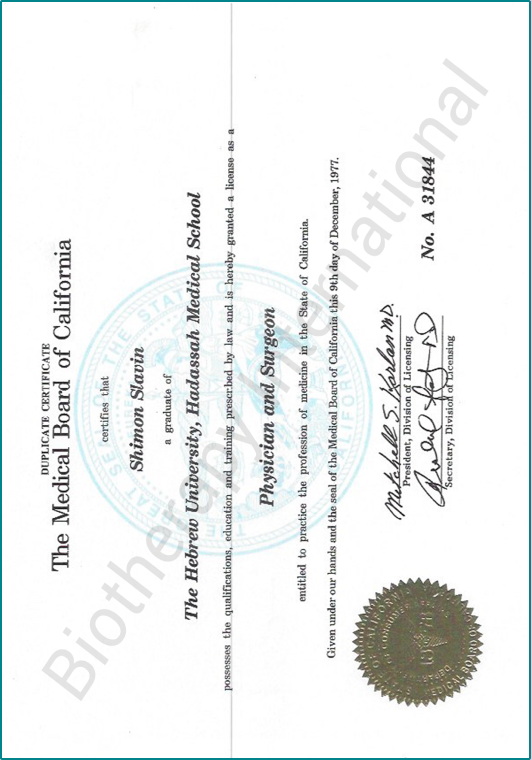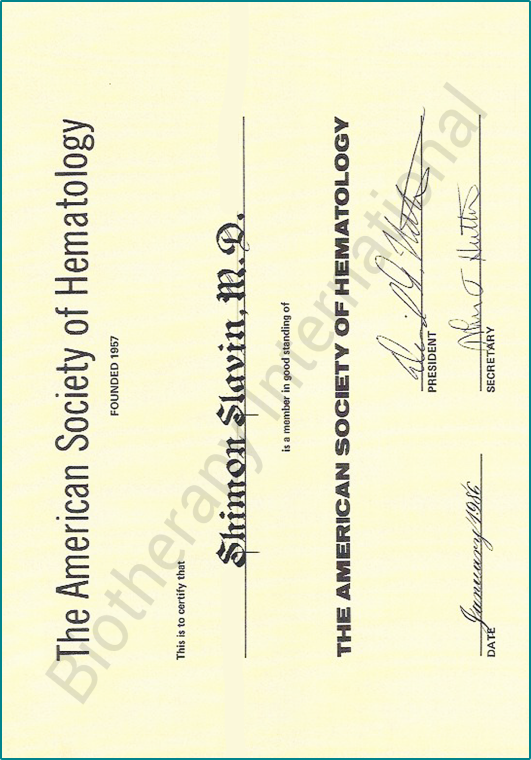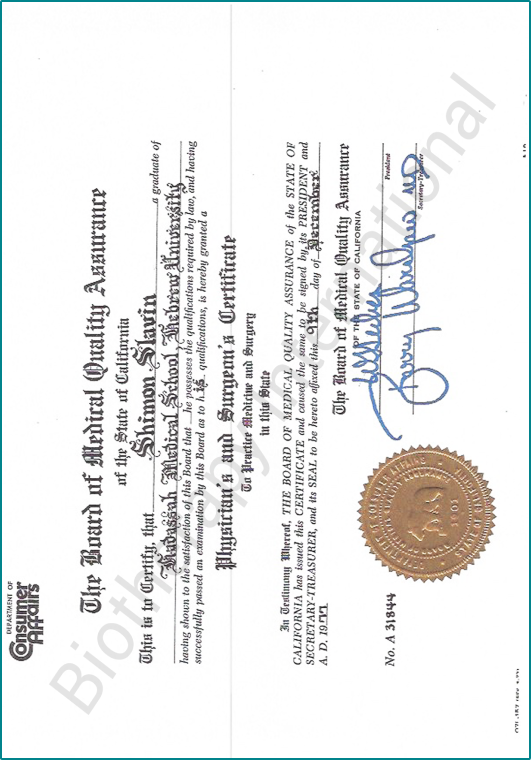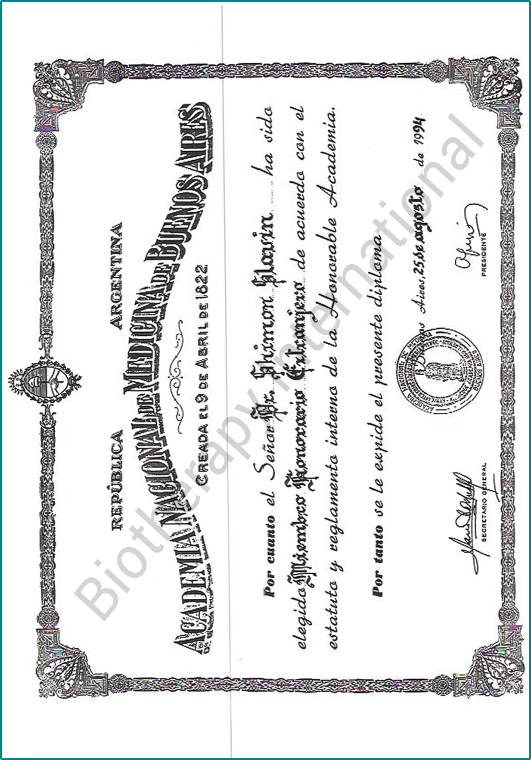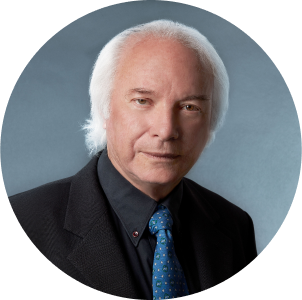
Professor Slavin is an Israeli scientist, a professor of medicine, and one of the world’s most renowned experts in the field of cancer immunotherapy and cell therapy.
He has conceived many innovative therapeutic procedures and pioneered their clinical application from the bench to the bedside.
After graduating from medical school at Hebrew University, Shimon Slavin specialized in Clinical Immunology & Rheumatology at Stanford University in California. Slavin was the Founder and Director of Hadassah University Hospital’s National Center for Bone Marrow Transplantation & Cancer Immunotherapy in Jerusalem, and served as the 1st President of Israel’s Bone Marrow Transplantation Society.
Slavin also served as the Medical Director of Cancer Immunotherapy at the Cancer Treatment Centers of America (CTCA). At present, Slavin is the Medical & Scientific Director of Biotherapy International.
Professor Slavin is the author of four books and over 680 scientific articles. His current research activities are aimed at developing new methods of immunotherapy to treat multidrug-resistant cancers. The professor continues to practice clinical medicine, admitting and consulting remotely with patients from all over the world.
Education and Training
1959-66: Doctor of Medicine (MD), Hadassah-Hebrew University Medical School, Jerusalem (License no. 8909).
1970-75: Internal Medicine. Major Interest: Clinical Immunology, Internal Medicine A, Hadassah University Hospital, Jerusalem.
1975: Experimental Immunology, Department of Immunology, Hadassah University Medical School, Jerusalem.
1975-78: Clinical Immunology/Rheumatology and Experimental Transplantation/ Immunobiology. Division of Immunology, Department of Medicine, University School of Medicine, Stanford, California, USA
1978: Clinical Bone Marrow Transplantation. Bone Marrow Transplantation, Fred Hutchinson Cancer Research Center, University of Seattle, Washington, USA.
Specialization & Licenses
1975: Internal Medicine (Hadassah University Hospital, Jerusalem) (# 5196).
1977: Clinical Immunology/Rheumatology (Stanford University Medical Center, Stanford California, USA) (MD license available from the Medical Board of California; Physician & Surgeon Certificate #31844).
1978: Clinical Bone Marrow Transplantation (Fred Hutchinson Cancer Center, Seattle, Washington, USA).
1984 – 2004: Clinical Immunology & Allergology (Hadassah University Hospital) (# 8046). Illinois License Certificate #036-111873.
A more detailed summary of Slavin’s accomplishments, supported by the relevant scientific literature, can be found on Shimon Slavin’s Wikipedia page
